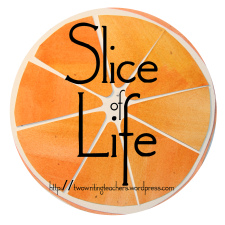It is not an easy thing to run a writing workshop, but it is well worth the effort. Our student writers should write with a purpose in mind and an audience that they value. The more knowledgeable you become, the less program dependent you become. To that end, I believe it is important to read professional books on the teaching of writing – as many as you can possibly get your hands on – and attend conferences and courses where the teaching of writing is one of the topics.
Writing truly has the power to transform what is going on in classrooms. Our writers will develop and refine their thought processes as they think aloud on paper in workshop and across their day. Writing makes their thinking visible, allowing them to organize their ideas, share them with others, and revise them. Students can learn from each other if their thoughts are written down. That way, they don’t have to worry about remembering what they were going to say – they can listen to other people’s thinking until it is their time to share. Students rise to meet a challenging curriculum, and writing workshop should nudge them to take risks in order to write differently tomorrow than they are writing today.
There are certain conditions that must be in place in order for high achievement and self-directed learning. Students (and teachers) must be willing to try new things and have confidence that they will succeed. There must be a high level of teacher knowledge (we are always learning, too). High expectations are in place for all students.
Primary and intermediate cultures should not be separate – communication between these teachers should be ongoing and frequent. Weekly professional conversations are important. These conversations are necessary to push students forward. School communities must find the time for colleagues to discuss what is happening inside their classrooms and problem solve together. Many heads are better than one! There is a huge reading-writing connection that we often do not pay attention to. For young children, their writing is often a way into their reading.
Finally (for today anyway), focus on the praise so that your students have the confidence to continue to write and perhaps, even the desire to write. In the end, students learn as much by writing as by reading – about themselves, the people they care about, and the world around them. Write often, write daily, write!
The desire to write grows with writing. ~Erasmus


 RSS Feed
RSS Feed
